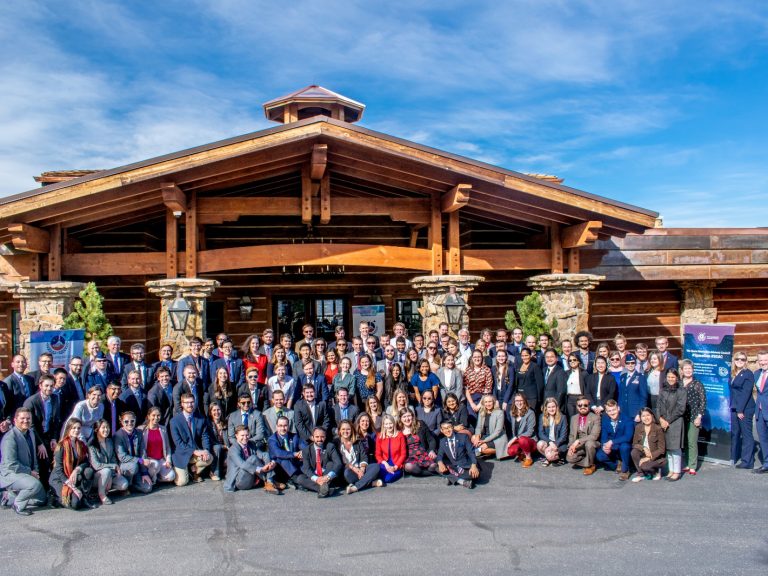Space Generation Fusion Forum
Last week Harriet Brettle and Alexandra Gravereaux, supported by Astroscale UK, attended the Space Generation Fusion Forum in Colorado Springs. Here they share their story!
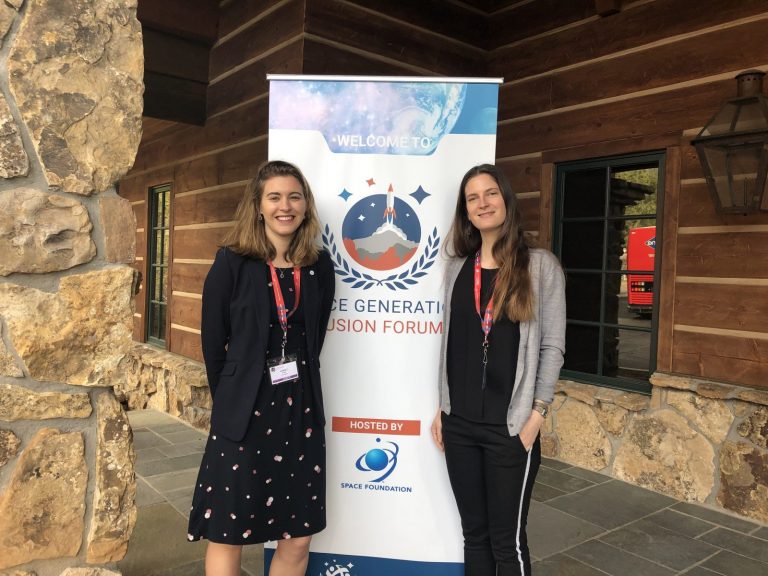
The Space Generation Fusion Forum is a high-intensity, fast-paced professional development and networking event focused on the international and US space industry. It is organised by the Space Generation Advisory Council (SGAC), a global non-profit organisation that supports students and young professionals connect to the wider space industry. Throughout the course of the three day event, and together with 70+ delegates from across the world, we engaged with space industry leaders and discussed key issues facing the space community.
Here is a summary of some of our activities:
Satellite Innovation: Enabling the Next Paradigm Shift
On the Sunday 7 April, Charity Weeden, US Senior Advisor for Policy and Strategy at Astroscale, moderated a panel on Satellite Innovation: Enabling the Next Paradigm Shift. The panel included representatives from the Satellite Industry Association, Bridgesat, Northrop Grumman and Harris Corporation, who discussed how the satellite industry will change as we move forward. A number of factors drive innovation in the satellite industry and the panel discussed the role of competition in driving greater accessibility to space, new launch capabilities, and manufacturing advancements. As the satellite industry evolves and space becomes more crowded, there is an even greater need for satellite operators to be responsible space actors. Charity shared Astroscale’s ‘leave no trace’ attitude to space sustainability and invited industry to develop best practices for debris mitigation that will pave the way for future innovation.
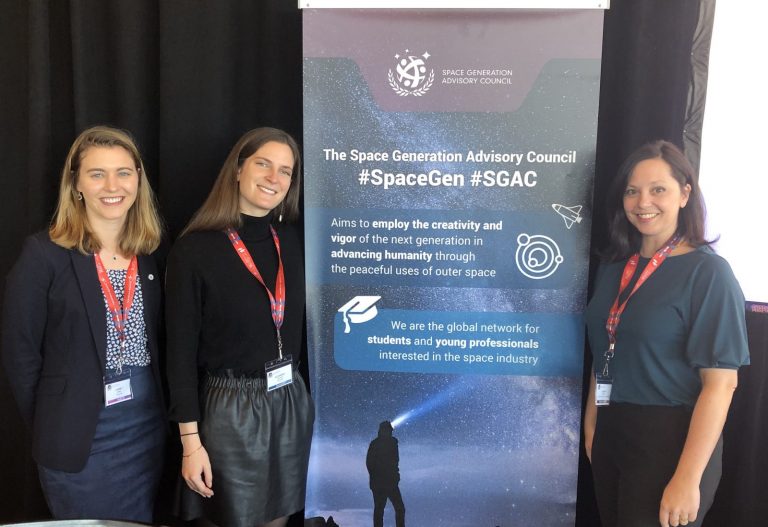
Thought Provoking Discussion Groups
The topic of space debris was raised repeatedly throughout the Fusion Forum, highlighting the importance of space sustainability to the next generation. The Secure World Foundation led a discussion on sustainability and security that highlighted the limitations of current collision avoidance capabilities Many satellites are not equipped with rendezvous and manoeuvre capabilities that are required to mitigate collision risks. As operational orbits are becoming crowded with satellites, both operational and non-operational, the risk of collisions is increasing. This leads to the growing necessity of de-orbiting all satellites that are still to be launched, such as the end-of-life services Astroscale is offering.
RUAG, a European based supplier of products for the space industry, led a group discussion on innovation in the space industry. Again, sustainability in space was highlighted as a key consideration as satellite constellations dramatically increase the number of satellites in orbit. How do we ensure that space debris is managed as the number of satellites continues to grow?
Alexandra attended a discussion group on the future of space communications: an international effort led by Jim Schier, Chief Architect of the NASA Space Communications and Navigation (SCaN). During this discussion, the importance of public private partnerships in space was a key topic, insisting on the challenge of approving the use of commercially developed emerging technologies for governmental and military missions, as well as the use of the SCaN network for commercial missions. The restrictions on spectrum use for both governmental and commercial space missions were discussed and recommendations were made on how to simplify and modernize the process of allocating frequencies to certain missions. This topic was of particular importance to us as Alexandra is currently working on acquiring ground station communication services for our demonstration mission End-of-Life Service by Astroscale demonstrator (ELSA-d), which has strict requirements in terms of coverage and frequencies. Jim Schier and the delegates in this breakout session insisted on the importance of international collaboration to enhance space communications for human and planetary exploration.
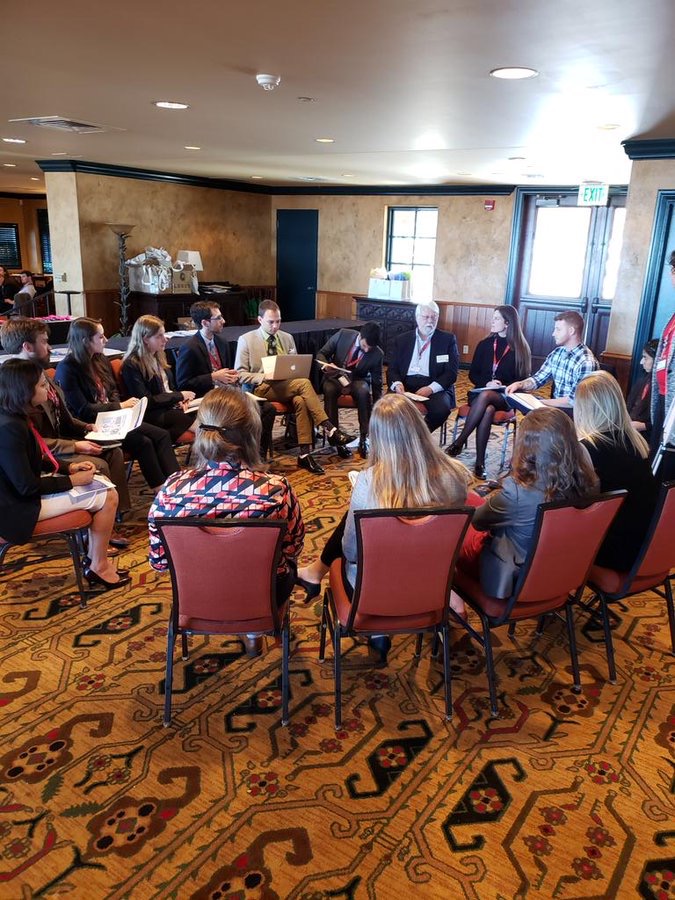
Keynote from General Hyten
In a keynote talk, General Hyten, Commander of the United States Strategic Command (StratCom), was asked about the role of the United States to mitigate space debris. General Hyten sees space debris as a big issue, so much so that he has built a team to analyse the risk of space debris and ensure that the space community is well-equipped for the future orbital environment. ‘We need to develop normative behaviours that mitigate space debris and work together with the international community.’ He cited skeptics who argue that space is big and debris is not a concern just yet. ‘But if that’s the case, then why does the International Space Station have to manoeuvre 3 times a year?! Space debris already has an impact on our operations and, looking forward, the threat of debris will continue to grow.’ General Hyten recognised that space debris is an international problem that needs to be solved internationally. At Astroscale, we are doing exactly that: through our global team in Japan, the UK and most recently the US, we are developing technical solutions that will keep space clean.
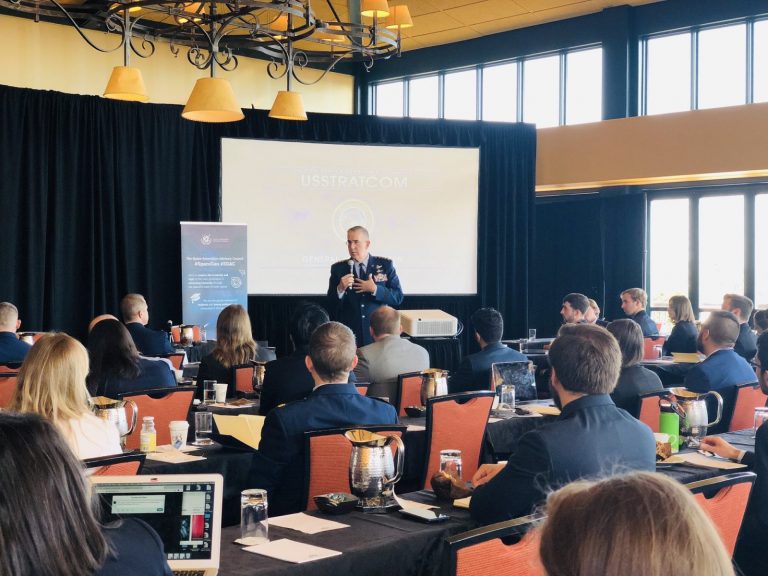
The potential threat of space debris was truly brought to life in a later talk by Sandy Magnus, a NASA astronaut who spent 134 days on the ISS from November 2008 to March 2009. She shared her experience of receiving an emergency call from mission control alerting her and the other astronauts to a ‘red conjunction event’. Due to a high-risk threat of collision between the ISS and space debris, all the astronauts on board the ISS had to evacuate to the Soyuz spacecraft in case of a collision.
Through the Space Generation Fusion Forum, we were re-invigorated and inspired to continue our mission at Astroscale to ensure space sustainability. This week we also celebrated as Astroscale CEO & Founder, Nobu Okada, joined the SGAC Advisory Board. We are thrilled to work for a CEO and company that supports the next generation of space industry leaders.
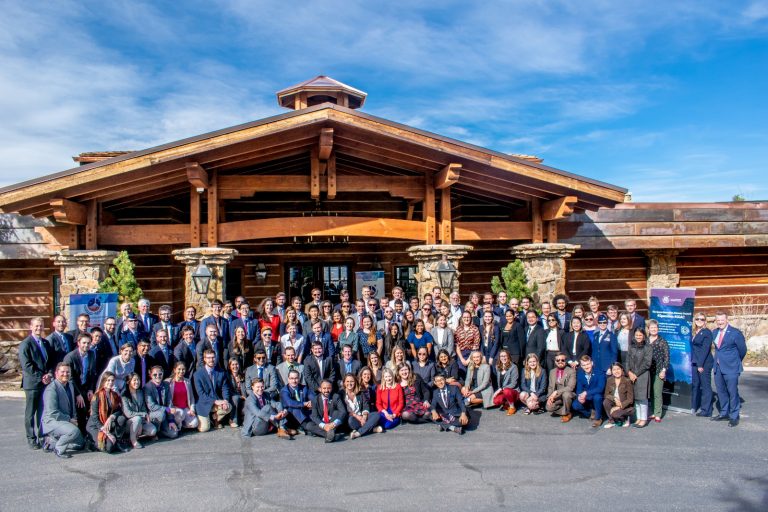

 Visit U.S. Site
Visit U.S. Site